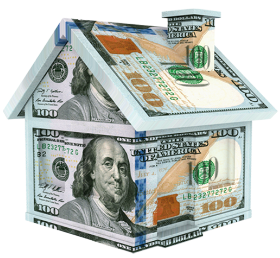Welcome to our monthly newsletter. This month, learn about all things home equity and how you can start putting yours to work for you. Home Equity is the current value of your home minus your mortgage balance. The difference between what you owe on your house and what the current value is can be positive or negative.
When you have positive equity in your house, it’s an asset you can borrow against, typically up to 80% of your home’s value. When you have negative equity in your home, selling your home isn’t enough money to pay off your mortgage. Thus, you have a shortage of funds needed to pay off your current balance owed and you need to bring cash to the closing if you want to sell your house.
Home equity is a large part of most people’s household wealth in America. That is particularly true for Black and Hispanic households according to the Federal Reserve.
Here’s how Home Equity works. The two main factors that determine what your home equity is worth depends upon your current principal mortgage balance and the local housing market in your area. Normally, as you repay your monthly mortgage, your equity would increase. However, if the value of your home is decreasing and the current value of your home is less than your mortgage principal balance you simply have no equity in your home. You owe your lender more than the house is worth.
There are factors beyond your control that impact how desirable homes in your neighborhood and can influence your property value either in a positive or negative way. In many markets, housing shortages have pushed home prices (values) up in recent years. Nationwide, the housing supply of homes available for sale is at a historic low, according to the National Association of Realtors. But if you live in a city with a declining population and aging housing, your home’s value may be on the decline. Even as you pay down on your mortgage, your home equity may be shrinking.
There is one thing you can do to try and preserve the value of your home and that is keeping up with the maintenance. A home that is well cared for will always be more desirable than the one that isn’t. You can build home equity basically in two ways. First, by Home Price Appreciation which is when the market value of your home increases (the amount you could sell it for goes up). Secondly, the longer you’ve had your mortgage, the faster you build up the equity in your home each month.
Home equity is a valuable resource for homeowners to use however they want. Some of the common uses for borrowing against the equity in your home are to pay for expenses like home renovations, higher education, debt consolidation or relocating to name a few.
If you want more information on how to calculate your home equity or how to use your home equity, please contact me and I would be delighted to help you.
Sincerely,
Arthur L. Seymore – President



